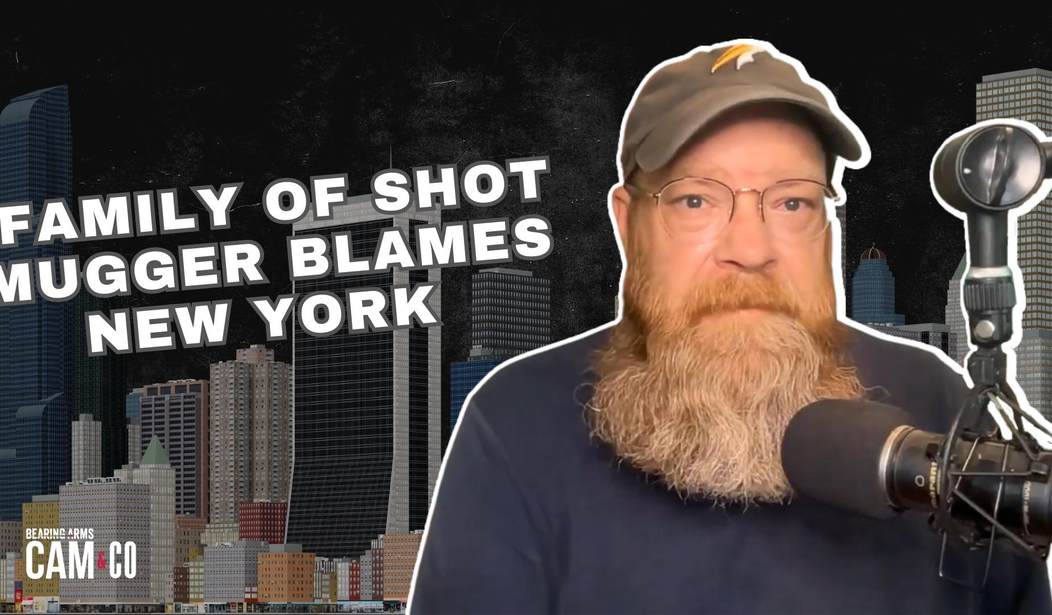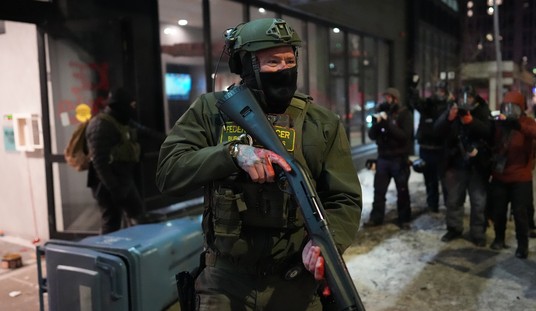While Queens D.A. Melinda Katz weighs murder charges against a 65-year-old man who shot and killed a mentally ill man who allegedly tried to rob him, the family of the would-be mugger says they blame the state for the death of Cody Gonzalez, not the armed citizen.
In an interview with the New York Daily News, family members of Gonzalez say the 32-year-old had struggled with mental illness for years and had repeatedly cycled in and out of jail and state-run mental facilities, but was always returned to the streets in relatively short order even though they believe he should have been institutionalized.
“We don’t fault the shooter,” said Stephan Gonzalez, 35, who is related to slain crook Cody Gonzalez’s adopted family by marriage and has known him for more than 12 years.
“We all feel that Cody should had been in a psych facility. If anything, the state failed him,” he told the Daily News on Wednesday night.
Cody Gonzalez, 32, was shot when he attempted to mug Charles Foehner, 65, demanding cash and cigarettes outside the shooter’s 82nd Ave. apartment building near Queens Blvd. in Kew Gardens at 2 a.m.
The crook was waving a sharp object that turned out to be a pen and bore down on his target even as he was shot five times, video showed.
Cody Gonzalez suffered from mental illness and had been living in a halfway house before meeting his end at the hands of his intended victim, according to his family. He usually managed to stay out of trouble — so long as he was taking his medication, they said.
Which wasn’t always a sure bet. Other local news outlets have reported that Gonzalez had an “extensive record” with the NYPD, though so far no details have emerged about what charges he faced previously or what, if any, consequences he received in the criminal justice system.
Before the shooting, Gonzalez allegedly went on a rampage in the area, smashing an intercom, windows and doors, apparently trying to break into several buildings, according to sources. Gonzalez has an extensive arrest record in New York, according to NYPD records.
“Every case is complicated; it’s a complicated case, and we’re going to review the evidence,” District Attorney Melinda Katz said at the scene.
Officers recovered a firearm and brought in the shooter for questioning. He has since been charged with criminal possession of a weapon and criminal possession of a firearm, a Queens District Attorney’s Office spokesperson said. According to sources, Foehner, who has a clean record, didn’t have a permit for the gun used in the shooting.
Thanks to New York’s draconian gun control laws, Foehner is now facing a mandatory minimum of more than three years in prison if he’s convicted of criminal possession of a firearm since he didn’t have an active pistol permit for the revolver he used to defend himself. According to police, the 65-year-old did have active permits allowing him to possess a shotgun and rifle at his home, which makes me wonder if he did have at least a premises permit for the pistol at some point.
We’re going to be talking more about NYC’s licensing laws and the struggle law-abiding folks have in obtaining a carry permit on tomorrow’s Cam & Co with New York attorney Peter Tilem, but on today’s show we’re focusing more on the comments by Gonzalez’s family about the lack of mental health treatment for their troubled relative. The city’s mental health system has come under a lot of scrutiny in recent months, especially with the death of Jordan Neely and his own struggles with mental illness. Like Gonalez, Neely cycled in and out of treatment and jail, but always returned to the streets after brief periods of confinement.
New York City Mayor Eric Adams has vowed to make it easier to take mentally disturbed individuals into involuntary custody, but there’s one big problem for the mayor: a lack of beds. As NY1 reported last year, even though the city’s population has grown substantially over the past couple of decades, the number of inpatient beds available for those in crisis continues to shrink.
Beds at state-run facilities in the city have been declining for years. In 2006, the state’s psychiatric institutions in the five boroughs had nearly 2,100 beds, but that has steadily declined. Since then, the state has decreased its bed count by 35 percent. Now, there are only 1,351.
Officials said the state was moving away from institutionalization and moving towards providing care in the community, including adding thousands of units of supportive housing. According to the state Office of Mental Health, there is a specific process for when beds at its facilities can be taken offline. For instance, beds have to be vacant for 90 days. So, officials say shrinking these facilities was about “right-sizing” the state institutions.
At the same time, the trend was happening at hospitals and private facilities, too. In 2004, there were 3,338 beds at these facilities. In 2021, that number was 2,867.
And during the pandemic, it got even worse.
About 21% of the licensed psychiatric beds in hospitals and private facilities in the city were moved offline temporarily, according to the state Office of Mental Health, mostly to provide COVID-19 care.
Gov. Kathy Hochul has promised millions of dollars in state funding to bring those beds back, but there’s no timeline on when that might happen.
Combine New York’s lack of care for those suffering from acute mental illness, the soft-on-crime approach taken by New York lawmakers and D.A.’s like Alvin Bragg, and the rights-infringing gun control laws that continue to make it almost impossible for gun owners like Foehner to obtain a concealed carry license, and you have a perfect storm that leads to incidents like this. As a law-abiding citizen Foehner had every right to carry a gun for self-defense, and according to his own family Gonzalez had no reason to be out amongst the public at large other than the inability of city officials to adequately address the mental health crisis in the Big Apple. I’d say New York City didn’t just fail Gonzalez, but it has failed Foehner as well.









Join the conversation as a VIP Member